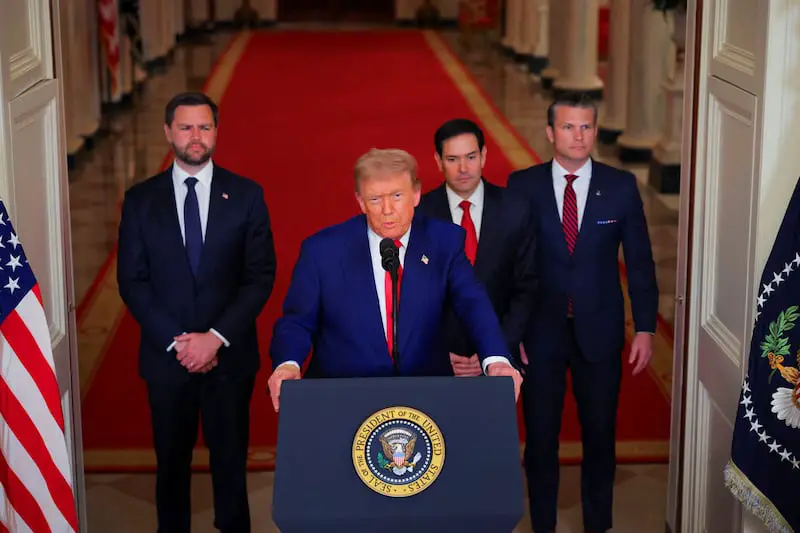NOTE: VIDEO AT THE END OF ARTICLE
A surprising shift in U.S. foreign policy alignment has emerged after Senator John Fetterman of Pennsylvania broke with Democratic Party leadership to support President Trump’s military strike on Iranian nuclear facilities. His backing of “Operation Midnight Hammer” underscores a changing dynamic in Congress where national security concerns are starting to transcend traditional party boundaries.
Fetterman’s public support on the platform X—calling Iran “the world’s leading sponsor of terrorism” and applauding the military’s precision—stands in contrast to many Democrats who either criticized the strike or called for more congressional oversight. This rare cross-party moment highlights a pragmatic security mindset that’s increasingly influencing foreign policy positions.
The military operation, which targeted Iran’s Fordow, Natanz, and Esfahan nuclear enrichment sites, was one of the most technically advanced in recent memory. Utilizing stealth bombers, GBU-57 bunker-busters, naval Tomahawk missiles, and cyber warfare, the U.S. executed a precise and casualty-free strike. Pentagon officials credit strategic deception—including a two-week delay—as key to its success.
While the tactical outcome was clear, the political and constitutional implications remain murky. Progressive lawmakers like Rep. Ro Khanna (D-CA) and Sen. Tim Kaine (D-VA) are pushing legislation to reaffirm congressional authority over military engagements, citing the War Powers Resolution of 1973. These efforts reflect growing concern about unchecked executive power in military affairs.
Security officials, including CIA Director John Ratcliffe, are warning of possible Iranian retaliation—ranging from cyberattacks and proxy militia action to domestic threats. Intelligence briefings to Congress are expected to assess Iran’s remaining capabilities and potential response strategies.
Retired General Mark Kimmitt noted the operation’s timing and secrecy saved lives, but cautioned that Iran’s regional proxies, like Hezbollah and militias in Iraq, still pose a significant threat to American forces and infrastructure.
Fetterman’s stance is politically risky but calculated. While it may alienate some progressive Democrats, it could bolster his appeal among moderates, independents, and pro-Israel voters. His move could signal a larger trend: foreign policy alliances forming not along party lines but around shared strategic priorities.
As Congress navigates this evolving landscape, the debate over executive military authority and the future of bipartisan cooperation on national security is likely to define the next phase of American foreign policy.

James Jenkins is a celebrated Pulitzer Prize-winning author whose work has reshaped the way readers think about social justice and human rights in America. Raised in Atlanta, Georgia, James grew up in a community that instilled in him both resilience and a strong sense of responsibility toward others. After studying political science and creative writing at Howard University, he worked as a journalist covering civil rights issues before dedicating himself fully to fiction. His novels are known for their sharp, empathetic portraits of marginalized communities and for weaving personal stories with broader political realities. Jenkins’s breakout novel, Shadows of Freedom, won national acclaim for its unflinching look at systemic inequality, while his more recent works explore themes of identity, resilience, and the fight for dignity in the face of oppression. Beyond his novels, James is an active public speaker, lecturing at universities and participating in nonprofit initiatives that support literacy and community empowerment. He believes that storytelling is a way to preserve history and inspire change. When not writing, James enjoys jazz music, mentoring young writers, and traveling with his family to explore cultures and stories around the world.









